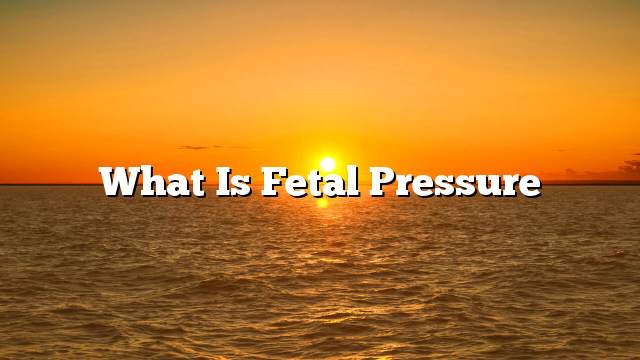Pre-eclampsia (fetal pressure)
Pre-eclampsia is a condition that affects women during pregnancy, in which they suffer from high blood pressure, called gestational hypertension, or in the colloquial language called fetal pressure or pressure during pregnancy, during which the secretion of large amounts of protein appears in Urine, and also show a lot of symptoms associated with this situation, and based on these symptoms was called this case of pregnancy poisoning. The most obvious and dangerous symptom in this case is the rise in blood pressure, as this condition causes the destruction of the lining of the blood vessels in both kidneys and liver in the mother, in addition to other secondary symptoms that cause constriction in the vessels.
The symptoms of the case of pre-eclampsia usually start from the 20th week of the first pregnancy. These symptoms usually change from one condition to another, and are often diagnosed as early births. This condition is not treated unless the mother is born by artificial cough or cesarean delivery. Pregnancy poisoning is a serious complication of pregnancy and has a serious impact on both women and children. Typically, a woman suffers from 2,000 episodes of preeclampsia, and an estimated 1.8% of the risk of death from preeclampsia. The diagnosis of pregnancy poisoning is sometimes caused by similar symptoms HELLP syndrome, which affects pregnant women. One of the most serious complications of pregnancy poisoning is a cerebral hemorrhage.
Causes of septicemia
There are several causes of the condition of pre-eclampsia such as: a defect in the material in the placenta, which lead to dysfunction in the blood vessels and other causes that contribute to the severity of this condition, and these reasons:
- Occurrence of infection in the internal cells of the blood vessels.
- Reaction is rejected by the immune system of the placenta in the body of the pregnant.
- Lack of chorionic perfusion.
- A change in blood circulation in the blood vessels.
- Unbalance between prostacycline and thrombocene.
- Severe contraction of blood vessels.
- High irritability in the central nervous system.
- Falling glomerular filtration rate.
- Retention of water and salts in the body.
- Occurrence of blood clotting.
- A lack of perfusion, which causes muscle contractions in the uterus.
- Lack of vitamins due to nutritional problems.
- The presence of genetic factors.
- Exposure to air pollution.
- The suffering of the pregnant woman is obese.
